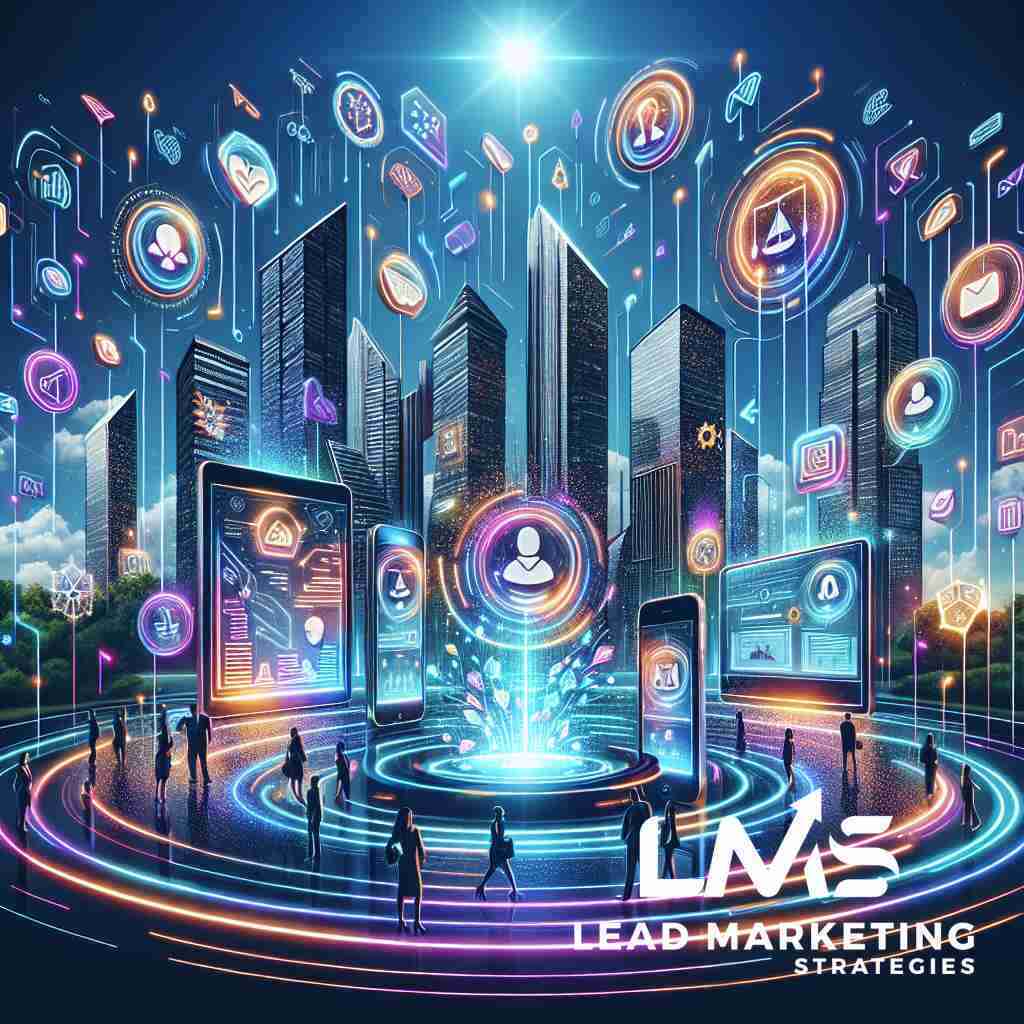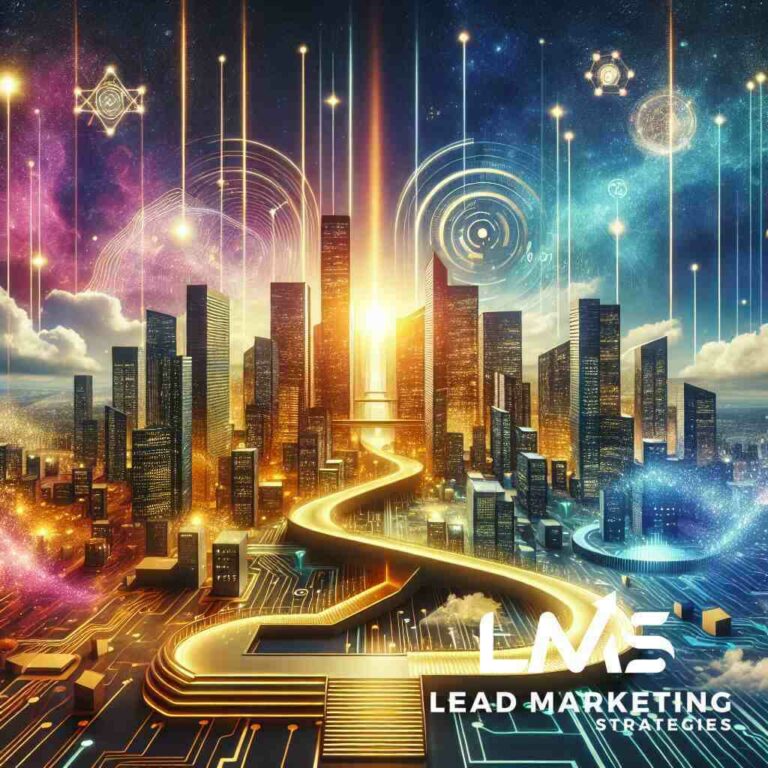Unveiling the Future of Legal Content Dynamics
The Evolutionary Landscape of Legal Content
In the ever-evolving world of law, content dynamics are reshaping how legal professionals reach and engage with their audiences. Over the past decade, there has been a significant shift towards more innovative and client-centered content strategies. Law firms are no longer just providers of legal services but storytellers and educators. This transformation is driven by the need to build trust and establish authority in the legal industry. With increasingly savvy consumers, there is a higher demand for accessible, transparent, and compelling content that demystifies complex legal concepts.
Today, legal content has moved beyond traditional formats like newsletters and brochures. It’s about creating meaningful connections through diverse channels, including blogs, social media, and video. Each format offers unique opportunities to connect with potential clients and demonstrate a law firm’s expertise. Innovative Law Firm Marketing Strategies have been instrumental in guiding this evolution, ensuring that firms remain competitive and relevant. In this rapidly changing landscape, staying ahead requires not only an understanding of current trends but also anticipating future shifts in consumer expectations.
Digital Transformation in Law: A New Era
The digital transformation in law has ushered in a new era where technology and legal services intersect profoundly. As clients become more tech-savvy, the demand for digital solutions in legal services has grown exponentially. Law firms are now embracing digital tools and platforms to innovate and streamline their operations. From AI-driven legal research to blockchain for contract management, technology is reshaping how legal work is conducted, creating efficiencies and opening up new possibilities for client engagement.
However, the transition is not without its challenges. Many law firms face hurdles in integrating digital technologies while maintaining ethical standards and protecting client data. Challenges in Digital Transformation in Law highlight the need for strategic planning and investment to navigate these complexities. Firms that successfully adapt to this digital landscape can offer more personalized and efficient services, ultimately enhancing client relationships and building long-term success.
Pioneering Trends Reshaping Legal Marketing
Legal marketing is witnessing pioneering shifts as firms explore new methods to capture and retain client attention. One notable trend is the increased emphasis on Personalization in Legal Content. By leveraging big data and artificial intelligence, law firms can deliver more tailored content that resonates on a personal level with potential clients. This approach fosters stronger relationships and increases the likelihood of converting prospects into loyal clients.
Another trend gaining traction is the integration of interactive content and advanced digital solutions to boost engagement and conversions. Videos, interactive polls, and webinars are making their mark as effective tools for legal marketing. Such dynamic content not only informs but also captivates the audience. Furthermore, the rise of Social Media Marketing for Lawyers underscores the importance of an online presence that reaches clients where they spend most of their time. By adopting these pioneering strategies, law firms can stay at the forefront of the industry, ensuring their messaging resonates with an ever-evolving client base.
Innovative Content Strategies for Law Firms
Interactive Legal Content: Engaging the Modern Clientele
In the realm of legal marketing, interactive content is revolutionizing how law firms connect with their clientele. Today’s digital consumers seek more than just passive reading materials; they want to engage directly with content that responds to their needs in real time. Interactive elements such as quizzes, calculators, and virtual legal consultations offer dynamic experiences that captivate audiences and hold their attention. These strategies highlight a firm’s expertise while providing immediate value to potential clients. By incorporating Interactive Legal Content into their content strategy, law firms can foster deeper engagement, understanding, and trust.
AI-Driven Personalization in Legal Content
Artificial Intelligence has become a pivotal force in transforming legal content marketing. With AI, law firms are now capable of offering highly personalized content tailored to the unique preferences and behaviors of their audience. AI algorithms analyze data from various client interactions, enabling firms to predict and meet client needs with precision. This personalization goes beyond addressing prospective clients by name; it involves crafting content that is relevant and timely to their individual journey. The Role of AI in Legal Marketing is thus strengthening relationships, improving satisfaction rates, and enhancing client loyalty.
Mobile-First Approach: Optimizing for On-The-Go Users
In an age where smartphones dominate our daily interactions, law firms must adopt a mobile-first strategy for their content marketing efforts. This approach ensures that legal content is not only accessible but also optimized for mobile devices, which is critical given the growing number of users who rely on their phones for information. A mobile-first strategy might include responsive web designs, succinct yet informative content, and mobile-friendly navigation. Focusing on this ensures that clients can access valuable legal information whenever and wherever they choose, thus expanding a firm’s reach and influence. Adopting a Web Design for Modern Law Firms that prioritizes mobile access is essential for any law firm aiming to thrive in a digital world.
Leveraging Legal Content Automation for Efficiency
Efficiency in legal content creation is paramount to maintaining consistency and quality across diverse platforms. Automation tools are proving indispensable, enabling law firms to manage multiple content streams with greater ease and accuracy. Whether it’s scheduling posts, sending automated responses, or generating reports, automation helps optimize time and resource management, allowing legal professionals to focus on solving complex client cases rather than content logistics. Streamlining these processes ensures legal content remains up-to-date and relevant, further reinforcing a firm’s reputation for reliability and expertise. By leveraging these technologies, law firms can increase their operational efficiency and stay competitive in an increasingly fast-paced market.

Dynamic Delivery and Engagement Innovations
Crafting Client-Centered Legal Narratives
Crafting client-centered legal narratives is pivotal in today’s legal content dynamics. This approach focuses on personalizing the legal experience by aligning storytelling with the unique challenges and needs of each client. By adopting a narrative-driven strategy, law firms can establish deeper emotional connections, thus fostering trust and engagement. In essence, each piece of content becomes a compelling story that not only informs but also resonates with the audience on a personal level. This technique is instrumental in demonstrating empathy and understanding, which are critical components in building long-term client relationships. Incorporating Client-Centric Content Marketing Insights can significantly enhance a firm’s ability to attract and retain clients, ultimately driving growth and success.
Visual Storytelling: The Power of Imagery in Legal Marketing
In the realm of legal marketing, visual storytelling has emerged as a powerful tool to capture attention and articulate complex legal concepts. Utilizing imagery, infographics, and dynamic visuals, law firms can convey their expertise more effectively than traditional text-based formats. This method not only boosts engagement but also aids in demystifying intricate legal processes for clients. Visual Storytelling in Law Firm Marketing helps establish a more relatable and accessible brand presence, essential in a digital age where visual content reigns supreme. By embracing this innovative approach, law firms can differentiate themselves in a competitive market, making legal services more approachable and engaging for potential clients.
Real-Time Content Delivery: Staying Ahead of Trends
Staying ahead of trends through real-time content delivery is a crucial aspect of modern legal marketing. In a fast-paced digital landscape, clients expect immediate access to the latest information and updates. Real-time content strategies, such as live-streamed webinars and instant news updates, allow law firms to provide timely insights that address the evolving needs of their audience. This proactive approach not only enhances client engagement but also demonstrates a firm’s commitment to transparency and responsiveness. By investing in technologies that facilitate real-time communication, law firms can maintain a competitive edge and foster a reputation for being both innovative and client-focused.
Cross-Platform Integration: A Seamless Content Experience
Cross-platform integration is the cornerstone of delivering a seamless content experience in legal marketing. In an era where clients utilize multiple devices and platforms to access information, a cohesive and unified content strategy is essential. By ensuring that content is accessible and consistent across various digital touchpoints, law firms can enhance user experience and engagement. Implementing Cross-Platform Integration for Legal Content allows firms to reach a broader audience, ensuring their message is delivered effectively, regardless of the platform used. This strategy not only amplifies a firm’s reach but also reinforces brand consistency, which is vital for building trust and credibility in the legal industry.
Ethical and Diverse Content Practices
Ethical Considerations in Legal Content Creation
In the realm of legal content dynamics, maintaining ethical standards is paramount. The legal industry is built on trust and credibility, necessitating that content reflects these core values. When crafting legal content, transparency and accuracy are essential. Misrepresentation or exaggeration can tarnish a law firm’s reputation and erode client trust. Adherence to ethical guidelines ensures that content does not mislead and is compliant with legal advertising regulations. Implementing Ethical Content Practices in Law is critical to uphold the integrity of legal marketing, protecting both the firm’s image and client interests.
Diversity in Legal Content: Inclusive and Comprehensive
Diversity in legal content is increasingly recognized as a vital component in reflecting society’s diverse legal needs. Law firms are embracing more inclusive content that speaks to a wide range of demographics and cultural backgrounds. This approach not only broadens a firm’s appeal but also acknowledges different perspectives and experiences in the legal system. Inclusive legal content must be both comprehensive and sensitive, presenting diverse case studies, using accessible language, and addressing issues relevant to marginalized communities. By prioritizing diversity, law firms can position themselves as empathetic and culturally attuned, thereby enhancing their reputation and reaching a broader client base.
Evolving Formats: From Blogs to Immersive Experiences
The evolution of legal content formats is a testament to how dynamic the industry has become. Traditional formats like blogs and articles are giving way to more immersive experiences. The use of videos, podcasts, and interactive platforms is on the rise, offering new ways to engage with clients. These formats cater to different learning styles and preferences, making legal content more accessible and engaging. Immersive experiences enable law firms to demonstrate intricate legal concepts in an easily digestible manner, ultimately providing more value to the client. By exploring Dynamic Content Delivery in Legal Marketing, firms can stay ahead in the competitive landscape.
Ensuring Content Integrity and Authenticity
Ensuring content integrity and authenticity is vital for maintaining credibility and trust within the legal sector. All published material should be thoroughly vetted to ensure it is factual and aligns with the firm’s values and messages. Authenticity in content strengthens client relationships, as it demonstrates honesty and transparency. Implementing robust review processes can help maintain high standards, ensuring that all legal content reflects the firm’s expertise and commitment to ethical practices. This not only safeguards a firm’s reputation but also fosters a loyal client base, as individuals are more likely to trust and engage with content that is genuine and reliable.

Conclusion: Navigating the Future of Legal Content
Strategizing for Success in Legal Content Dynamics
As the legal content landscape continues to evolve, law firms must craft innovative strategies to maintain a competitive edge. Success in this dynamic environment hinges on adaptability and a keen understanding of emerging trends. Firms must leverage data-driven insights to refine their content marketing tactics, ensuring relevance and resonance with their target audiences. Integrating SEO Optimization for Legal Websites can significantly boost visibility, positioning firms as thought leaders in the digital sphere. By aligning their content strategies with the latest industry shifts, law firms can achieve greater engagement and client satisfaction, securing their place in the market.
Embracing Change: Preparing for Future Innovations
The legal industry must embrace change to thrive amid rapid technological advancements. Proactively adapting to innovations like AI-driven content personalization and interactive user interfaces is crucial. Staying informed about Cutting-Edge Legal Marketing Trends ensures that legal professionals can capture the attention of modern clients. By investing in training and adopting adaptable workflows, firms can seamlessly integrate new technologies into their operations. This forward-thinking approach not only enhances service delivery but also significantly improves client retention. Preparing for future innovations will empower law firms to meet client demands effectively, ultimately fostering sustainable growth.
The Path Forward: Building Resilient Content Strategies
Looking to the future, law firms must build resilient content strategies that can withstand the test of time. This involves leveraging comprehensive market research and analytics to inform content creation and distribution. Recognizing the importance of cross-platform integration and consistent messaging will ensure a firm’s brand remains strong across all channels. Implementing robust SEO practices, including Search Engine Marketing for Attorneys, allows firms to stay visible in a crowded digital space. By focusing on authenticity and ethical content creation, firms can cultivate trust and credibility with their clientele. A strategic, well-rounded approach to content will navigate the complexities of the evolving legal landscape, ensuring long-term success.
Frequently Asked Questions
Question: What role does AI-driven legal content play in emerging legal content dynamics, and how can Law Firm Marketing Strategies help firms integrate these technologies?
Answer: AI-driven legal content is reshaping how law firms personalize their marketing strategies to improve client engagement and satisfaction. By leveraging artificial intelligence, firms can offer individualized content that addresses specific client needs and preferences. Law Firm Marketing Strategies supports this technological integration by offering attorney digital marketing solutions that include AI-driven personalization techniques. By adopting these methods, firms can enhance their client relationships through more relevant and timely content, strengthening their reputation as leaders in the legal industry.
Question: How can interactive content enhance law firm marketing strategies, and what services does Law Firm Marketing Strategies provide to implement this?
Answer: Interactive content is vital for modern clientele engagement, offering dynamic and engaging experiences. Quizzes, virtual consultations, and webinars are effective methods to capture audience attention and showcase a firm’s expertise. Law Firm Marketing Strategies specializes in legal content marketing and provides tools to build interactive content strategies that deepen client engagement and trust. By incorporating these captivating formats, law firms can effectively market their services and improve their digital footprint.
Question: In the context of “What Are Emerging Trends in Legal Content Dynamics,” why is a mobile-first content strategy crucial, and how does Law Firm Marketing Strategies assist in this transition?
Answer: A mobile-first strategy is essential as more clients access legal services on the go through their smartphones. It ensures that legal content is optimized for various mobile devices, enhancing accessibility and user experience. Law Firm Marketing Strategies empowers firms by providing law office web design services that prioritize mobile optimization. By adopting this approach, firms enhance their reach and engagement, ensuring they meet the modern consumer’s expectations.
Question: What are the ethical considerations in legal content creation, and how does Law Firm Marketing Strategies help law firms navigate these challenges?
Answer: Ethical legal content creation is fundamental to maintaining trust and credibility in the legal industry. Transparency, accuracy, and compliance with advertising regulations are crucial to avoiding misrepresentation. Law Firm Marketing Strategies offers ethical content practices in law that ensure all marketing materials meet industry standards. Through comprehensive law firm reputation management services, we help firms maintain their integrity while effectively reaching their audience.
Question: How can visual storytelling enhance legal marketing, and what solutions does Law Firm Marketing Strategies offer in this area?
Answer: Visual storytelling allows law firms to communicate complex legal concepts through engaging and easily digestible formats such as infographics and dynamic visuals. This method increases engagement and makes legal services more accessible. Law Firm Marketing Strategies offers solutions like law firm brand development and attorney website optimization to help firms implement visual storytelling in their marketing efforts. By adopting these strategies, firms can stand out in a competitive market and deliver a memorable client experience.




